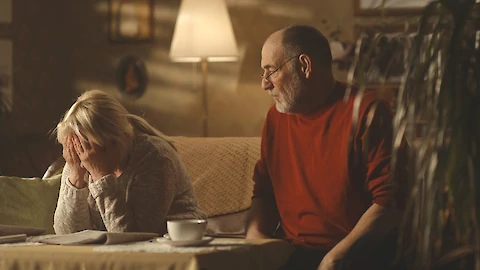
Sundowning is a common phenomenon experienced by seniors with Alzheimer's disease, characterized by increased confusion, agitation, and mood swings during the late afternoon and evening hours. For family members living with a loved one with Alzheimer's, understanding the triggers of sundowning and incorporating strategies to reduce its impact is crucial for improving their daily life. You can explore the triggers to adjust your routine for positive change.
Top Triggers of Sundowning
When you know what triggers sundowning, you can make more effective changes. Here are some of them:
1. Fatigue
Fatigue is a common trigger for sundowning episodes. Ensuring your senior loved one gets enough sleep at night and encouraging regular naps during the day can help mitigate sundowning symptoms. You want to establish a consistent sleep schedule. Creating a comfortable sleep environment can also be beneficial.
2. Hunger and Dehydration
Hunger and dehydration can contribute to sundowning. To prevent this, provide regular meals and snacks throughout the day. Encourage them to drink water frequently to maintain proper hydration levels.
3. Overstimulation
Excessive noise and distractions in the evening can lead to overstimulation, which may trigger sundowning. Limit background noise by turning down the volume on televisions and radios. You can encourage your loved one to engage in quiet activities in the evening, such as reading or puzzles.
4. Confusion Caused by Low Lighting
Low lighting can cause confusion and disorientation, contributing to sundowning. Ensure that your home is adequately lit, particularly in the evening, to help minimize confusion. Installing nightlights in hallways and other common areas can also help prevent disorientation during nighttime hours.
5. Disrupted Internal Clock
A disrupted internal clock can lead to changes in sleep patterns, which may trigger sundowning. Maintaining a consistent daily routine can help regulate your senior loved one's internal clock and minimize the risk of sundowning. Encourage them to wake up and go to bed at the same time each day. You should also expose them to natural daylight by opening curtains and blinds or spending time outdoors.
6. Medication Side Effects
Certain medications may have side effects that trigger sundowning. Consult with your senior loved one's healthcare professional about adjusting medications or changing dosing schedules to minimize side effects. Regularly monitor your senior loved one's reaction to medications to help identify any potential issues.
7. Anxiety and Stress
Anxiety and stress can be triggers of sundowning symptoms. Providing reassurance and comfort to your loved one during times of confusion or agitation can help alleviate their anxiety. Encourage relaxation techniques, such as deep breathing exercises or listening to calming music, to promote a sense of calm and well-being.
Tips for Incorporating Changes into Daily Routines
Try not to rush changes and further disorientate your senior loved one. Try some of these tips:
Make Small Adjustments Gradually
Introducing changes gradually can help your senior loved one adjust to new routines. Start by making small adjustments and building upon them over time.
Communicate With Other Family Members
Consistency is critical in managing sundowning symptoms. Ensure that all family members are aware of your senior loved one's routine and any changes to it. This way, everyone can work together to provide a stable and supportive environment.
Be Patient and Understanding
It is essential to approach the process with patience and understanding. You should be prepared for trial and error as you identify what works best for your loved one. Remember that progress may be slow, but even little improvements can make a significant difference.
Benefits of Addressing Sundowning Triggers
Addressing sundowning triggers can lead to a variety of benefits for both your loved one and your entire family. Some of these include improved quality of life for the senior, reduced stress and anxiety for family members, and an overall enhanced sense of well-being for the entire household.
Partner With Senior Helpers Chicago/Evanston for Quality Care
Understanding and addressing triggers of sundowning is essential for families living with a senior loved one with Alzheimer's disease. By incorporating the tips above, you can minimize the risk or severity of sundowning episodes and create a more comfortable and supportive living environment.
If you're seeking additional support and resources for managing Alzheimer's disease in Chicago and Cook County, IL, contact Senior Helpers Chicago/Evanston. Our compassionate team can provide respite care, specialized Alzheimer's care, and more. Reach out to us now to learn more about our services!